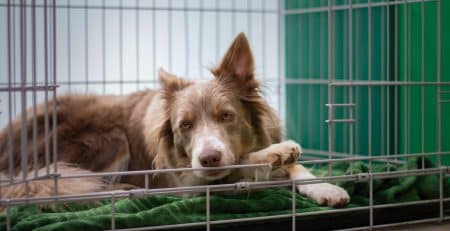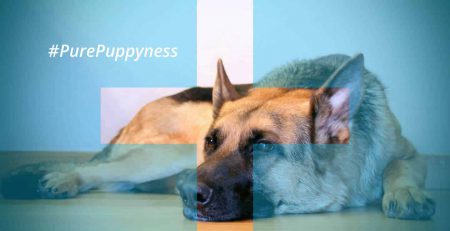Why you SHOULDN’T get a dog for Christmas
Dogs are great. We love dogs, and encourage people to get a canine companion of their own. So why are we telling you not to get one at Christmas? The holidays seem like a perfect time to get a dog as a present for yourself or your family, and a puppy would surely add to the joy of Christmas. It may sound like a good idea, but we’re going to explain exactly why it isn’t.
All in the Timing
The holidays are a busy time. Most people will be busy putting up decorations, holding parties, and preparing meals. All the hustle and bustle combined with a dog is a recipe for problems.
When you get a new dog, that dog will need time to get used to their new environment and family. If you choose to get a puppy, the puppy may be missing its mother and siblings, and needs plenty of time and attention to help it cope. A new puppy is going to need a lot of attention anyway: your pup might not be house trained, which means someone will have to clean up after him/her. You should also spend plenty of time playing with your new puppy. If you’re preparing for the holidays, you might not have enough time to spend looking after your puppy properly.
And although for many people the holidays are a time to relax, with a new puppy you won’t have that luxury. A new puppy may wake you up at odd hours of the night, try to steal food from the bin, or pee on the carpet. Although the image of waking up to find a puppy under the Christmas tree is adorable, the reality is that the puppy will probably be chewing the tree and tearing up the presents.
Dogs enjoy routine. They find it comforting to know what is happening when. For most people, holidays are a disruption of the normal routine. You may be at home more often, or there may be a lot more visitors. A new dog or puppy will be confused by the lack of routine. Some dogs may even become anxious, which can lead to problematic behaviour such as inappropriate urination or nervousness.
Impulse buys
During the 1970s and 1980s, dog rescues began to notice a pattern. In the run-up to Christmas, there was a rise in dog adoption, but in January there was a similar peak in the number of dogs being handed in to dog shelters.
This was all the time it took for a new puppy or dog to go from being a delight to an unwanted gift. Maybe the novelty wore off or the family got tired of cleaning up after puppy; whatever the reason, the dog could find itself in an animal shelter, or abandoned to fend for itself. This was, and sometimes still is, the case for many dogs that were “impulse buys” at Christmas time.
The National Canine Defence League came up with the slogan “A dog is for life, not just for Christmas” to hammer home the point. Responsible dog breeders or dog rescue will probably not allow you to adopt a dog around Christmas time due to fear of seeing their animals returned, or worse, abandoned. There may be genuinely good reasons why a dog has to be returned; perhaps due to allergies or illness; but it’s a sad and stressful experience for the dog even at the best of times.
What to do instead
Don’t actually bring a home a puppy or dog for the holidays. What you can do instead is start contacting breeders and doing your research. If you have children and want to get them a puppy, please keep in mind that children are generally not mature enough to look after a dog by themselves. They probably also don’t know much about caring properly for a dog. You’ll have to do the majority of the work, though as your kids grow up they can take on more responsibilities.
Once you’ve done your research and decided what dog is right for you, you can start contacting breeders or rescues. You can meet all the dogs and puppies that you’re interested in and take your time deciding which one to get.
If you still want to surprise your children, then why put pictures of several dogs in a box or envelope, and present it to them as a Christmas gift. You can then explain that, once the hustle and bustle of the holidays is over, you’ll be looking for the perfect pup to bring home. You can also give them some dog related presents, such as books about dogs and dog-care, or a leash in their favourite colour. You can also take time to explain why you’re not getting a dog or puppy right away, which is a good way to teach your children about responsible dog-ownership.
When the holidays start winding down, you can use the remaining free days to visit potential dogs as a family. This way you’ll all be able to meet the dogs and see which one is the best fit for your family.






















